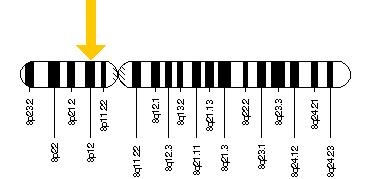Werner syndrome, also known as adult progeria, is a rare genetic disorder characterized by accelerated aging and the premature onset of age-related symptoms. It is caused by mutations in the WRN gene, which is responsible for encoding a protein involved in DNA repair and maintenance. Werner syndrome is inherited in an autosomal recessive pattern, meaning that an individual must inherit two copies of the mutated gene (one from each parent) to develop the disorder.
Individuals with Werner syndrome typically begin to show signs and symptoms in their late teens or early twenties, much earlier than would be expected for normal aging. These symptoms may include gray hair, thinning and wrinkling of the skin, cataracts, osteoporosis, diabetes mellitus, atherosclerosis, and an increased risk of certain cancers. As the disorder progresses, affected individuals may experience further deterioration of physical and cognitive function, leading to a shortened lifespan.
While there is currently no cure for Werner syndrome, treatment focuses on managing symptoms and addressing complications as they arise. This may include regular monitoring for the development of age-related conditions, such as diabetes and cardiovascular disease, as well as supportive care to maintain quality of life. Research into potential therapies and interventions for Werner syndrome is ongoing, with the ultimate goal of improving outcomes and extending the lifespan of affected individuals.

Do you want to know more about Werner syndrome? Let’s take a look at these 10 interesting facts about Werner syndrome to know more about it.
- Rare Genetic Disorder : Werner syndrome is a rare genetic disorder, estimated to occur in approximately 1 in 200,000 individuals worldwide.
- Accelerated Aging : Individuals with Werner syndrome experience accelerated aging, with symptoms typically appearing in their late teens or early twenties.
- Mutations in the WRN Gene : Werner syndrome is caused by mutations in the WRN gene, which plays a role in DNA repair and maintenance.
- Autosomal Recessive Inheritance : Werner syndrome is inherited in an autosomal recessive pattern, meaning that affected individuals inherit two copies of the mutated gene, one from each parent.
- Premature Aging Symptoms : Common symptoms of Werner syndrome include premature graying and thinning of hair, wrinkling and sagging of the skin, cataracts, osteoporosis, and diabetes mellitus.
- Increased Cancer Risk : Individuals with Werner syndrome have an increased risk of developing certain types of cancer, including soft tissue sarcomas and thyroid cancer.
- Progressive Decline in Function : As the disorder progresses, affected individuals may experience a progressive decline in physical and cognitive function, leading to a shortened lifespan.
- Lifespan : While life expectancy varies, individuals with Werner syndrome typically have a shortened lifespan compared to the general population, with death often occurring in early to mid-adulthood.
- Supportive Treatment : Treatment for Werner syndrome focuses on managing symptoms and addressing complications, such as diabetes and cardiovascular disease, to improve quality of life.
- Research and Awareness : Despite its rarity, ongoing research into Werner syndrome aims to better understand its underlying mechanisms and develop potential therapies to improve outcomes for affected individuals. Increased awareness of the disorder is also important for early diagnosis and intervention.
Werner syndrome presents a unique challenge as a rare genetic disorder characterized by accelerated aging and an increased risk of age-related diseases. Despite its rarity, the impact of this condition on affected individuals and their families is profound. As research into the underlying mechanisms of Werner syndrome continues, there is hope for improved understanding, early detection, and potential treatments to alleviate symptoms and extend the lifespan of those affected. Increased awareness of Werner syndrome among healthcare professionals and the general public is essential to ensure timely diagnosis and support for individuals living with this complex condition. Through ongoing research, advocacy, and support, the goal remains to improve the quality of life and outcomes for individuals affected by Werner syndrome.



